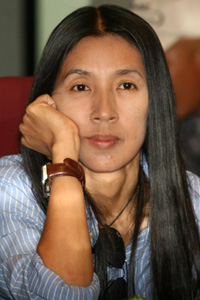
The return of Malaysian strongman Mahathir Mohamad to politics has led to uncertainty over the peace talks over the deep South between the Thai authorities and the Mara Patani. The talks, initially set for last month, have been postponed.
The talks kicked off at the time of former prime minister Najib Razak who was said to have thrown his full support behind the talks which were initiated by Yingluck Shinawatra, his counterpart. He named his close aide and former security chief Dato Sri Ahmad Zamzamin bin Hashim as talks facilitator. When Gen Prayut Chan-o-cha took power in 2014, following the coup that ousted the Pheu Thai government, he asked Mr Najib for continued support.

Wassana Nanuam is a senior news reporter covering military affairs for the Bangkok Post.
Now that Dr Mahathir has taken the helm of the administration, in what has been called a "people's tsunami", speculation is rife he may want to see changes. There are reports that the 92-year-old leader may seek to removed the incumbent Dato Sri Ahmad Zamzamin, and name his own man for such a crucial position.
The reports became more convincing after Dato Sri Ahmad Zamzamin informed Aksara Kerdpol, chief negotiator, that the talks, initially set for this month, would have to be postponed indefinitely.
A military source noted there are concerns the postponement of the talks would cause a delay in the designation of Cho Airong district in Narathiwat as a much-touted safety zone. Initially, the Thai authorities planned to announce the designation at peace talks this month, after agreeing to move the date from April as a result of technical problems on the part of Mara Patani, an umbrella body consisting of several separatist groups including the Barisan Revolusi Nasional, or National Revolutionary Front.
But the May 9 election in Malaysia which saw Dr Mahathir return to power has caused another delay in the process.
"We are waiting for the full cabinet to take shape and now it's Ramadan. It will take some time," Gen Aksara said.
"We cannot foresee what will happen or the changes ahead of us. We just hope that Malaysia will still support the talks."
The chief negotiator insisted Thailand will go ahead with the safety zone designation which he described as an internal affair of the country. "We are ready to make the announcement. When Mara Patani is ready, we will do it," he said.
He dismissed some observers' speculation that the country should accommodate Mara Patani and instead make a joint announcement.
When asked about the measures regarding safety zone designation, Gen Aksara said the Thai agencies have gone by the book to ensure public safety. Now it's Mara Patani's duty to order those under its leadership to refrain from making attacks and cooperate in public forums and the judicial process in order to promote peace in the restive area.
The chief negotiator said there have been changes in the talks process, with the team directly reporting to the prime minister. This is a departure from the old practice of the previous team, set up by former prime minister Yingluck, which had some liberty to engage in deals with insurgent groups.
However, unnamed security sources said there are concerns that the political change in Malaysia might affect the southern peace talks. Some observers said that Dr Mahathir may, unlike Mr Najib, not see the need to fully support the process. Yet, by protocol, he will have to maintain Malaysia's facilitator role to avoid undesirable effects on ties with Thailand.
However, a source in the 4th Region Army said there are no expectations about Dr Mahathir regarding the southern peace talks process. The source said, in the past, insurgents would carry out operations and sneak to the other side of the border. "We cannot rely on other parties," he said.
